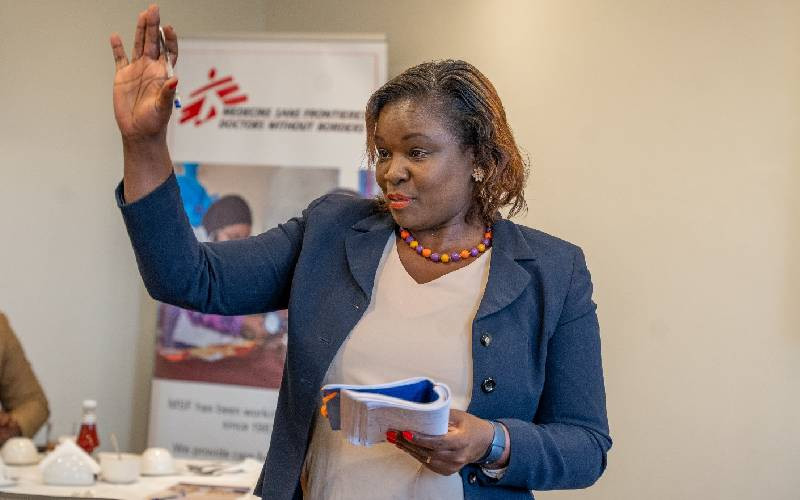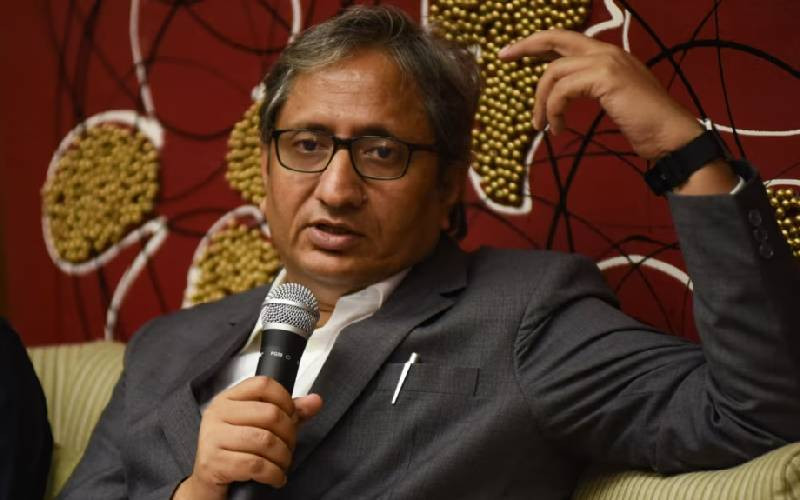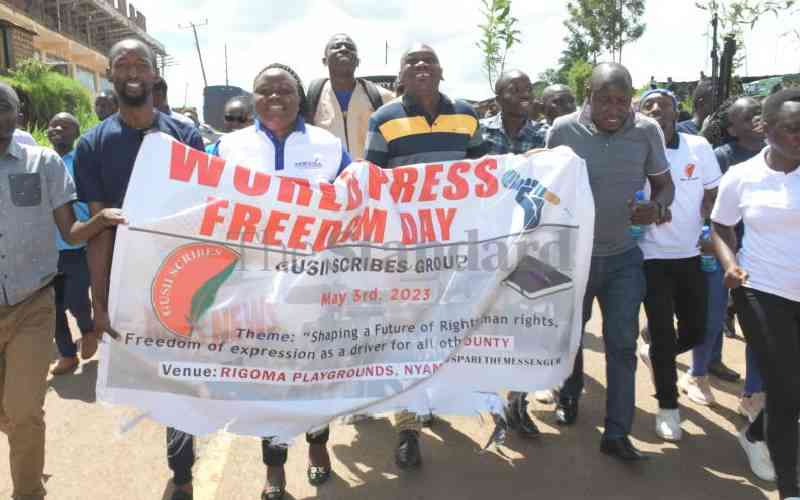A clash between Germany's chief prosecutor and the justice minister burst into the open Tuesday, sparked by a treason probe into a blog that had published classified security agency files.
Chief prosecutor Harald Range took the unusual step of openly accusing Justice Minister Heiko Maas of "an intolerable encroachment on the independence of the judiciary".
The case centres on the Netzpolitik.org (Net politics) blog, which earlier this year published documents on plans by Germany's domestic security agency to expand its Internet surveillance.
Last Thursday the blog revealed that Range's office had launched a treason investigation into two of its writers -- Germany's first such probe against the media in over half a century.
The news set off a storm of protest and expressions of solidarity from journalists, bloggers and politicians, who charged the treason case was an attempt to silence investigative reporters.
On Twitter #Landesverrat (#treason) became a top trending topic and the case sparked a Berlin street rally and online petitions in support of Netzpolitik.
Maas had also criticised the probe, which Range suspended on Friday, pending advice from an independent expert on whether the published documents were indeed "state secrets".
The controversy has flared amid persistent anger over the US National Security Agency's mass surveillance activities revealed by fugitive intelligence contractor Edward Snowden, and questions about the extent of German cooperation.
- 'Chilling effect' -
Maas, the justice minister, has the backing of Chancellor Angela Merkel in the spat, her spokeswoman said, and some critics called on Range to step down.
But on Tuesday the 67-year-old chief prosecutor shot back.
He said the independent expert had agreed that the documents appeared to be state secrets, as asserted by domestic security agency chief Hans-Georg Maassen.
Range said he had informed the justice minister of this but was told "to immediately stop" the process of commissioning outside advice.
The chief prosecutor said he had complied, but he added angrily that "to exert influence on an investigation because its possible outcome may not be politically opportune represents an intolerable encroachment on the independence of the judiciary".
"I saw myself obliged to inform the public about this," he added in a statement.
Stay informed. Subscribe to our newsletter
On the broader Netzpolitik case, he said: "The freedom of the press and of expression is a valuable asset.
"But this freedom, including on the Internet, is not limitless. It does not absolve journalists of the duty to comply with the law."
Netzpolitik founder Markus Beckedahl said Tuesday he saw the treason probe as an "attempt to intimidate" journalists and their sources to stop reporting on aspects of "the greatest surveillance scandal in the history of humanity".
The case also made waves abroad, when the Organisation for Security and Cooperation in Europe urged the probe be stopped, in an open letter to Foreign Minister Frank-Walter Steinmeier.
"The threat of being charged with treason has a clear general chilling effect on journalists engaged in investigative reporting," wrote OSCE media freedom representative Dunja Mijatovic.
"I urge the authorities in Germany to look into the case and ensure that freedom of information and freedom of the media are respected, and hope the investigation is terminated."
 The Standard Group Plc is a
multi-media organization with investments in media platforms spanning newspaper
print operations, television, radio broadcasting, digital and online services. The
Standard Group is recognized as a leading multi-media house in Kenya with a key
influence in matters of national and international interest.
The Standard Group Plc is a
multi-media organization with investments in media platforms spanning newspaper
print operations, television, radio broadcasting, digital and online services. The
Standard Group is recognized as a leading multi-media house in Kenya with a key
influence in matters of national and international interest.
 The Standard Group Plc is a
multi-media organization with investments in media platforms spanning newspaper
print operations, television, radio broadcasting, digital and online services. The
Standard Group is recognized as a leading multi-media house in Kenya with a key
influence in matters of national and international interest.
The Standard Group Plc is a
multi-media organization with investments in media platforms spanning newspaper
print operations, television, radio broadcasting, digital and online services. The
Standard Group is recognized as a leading multi-media house in Kenya with a key
influence in matters of national and international interest.









